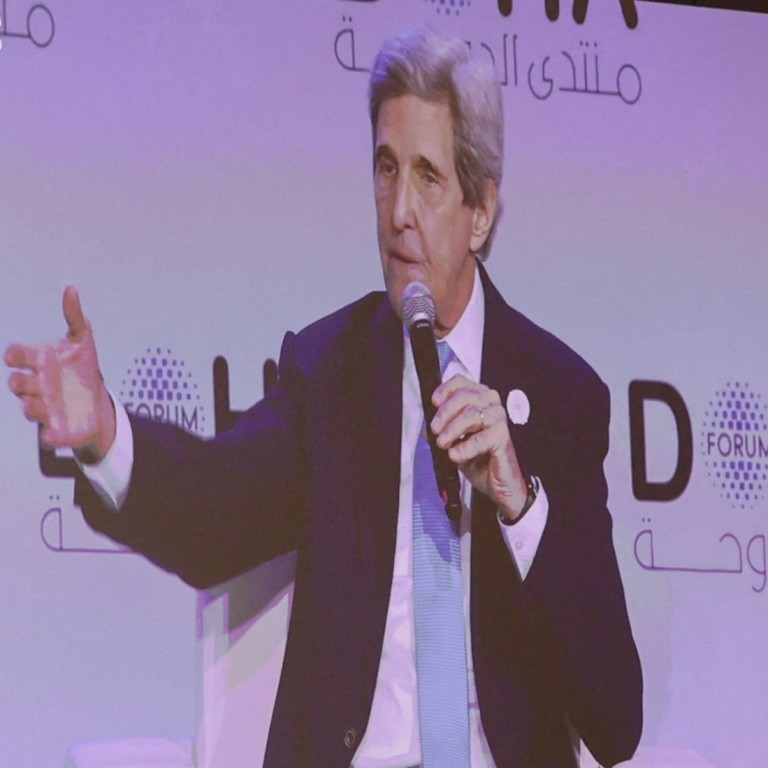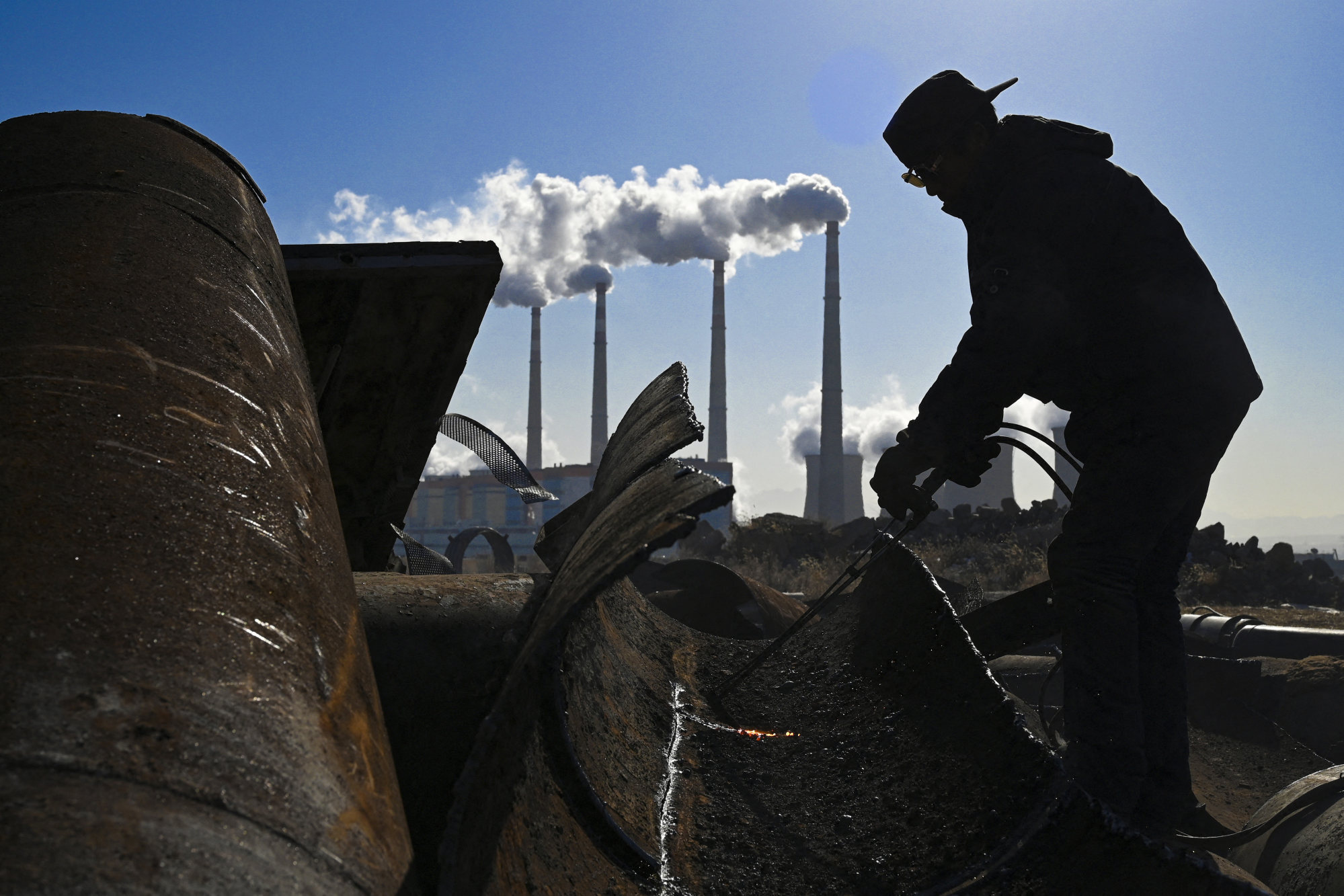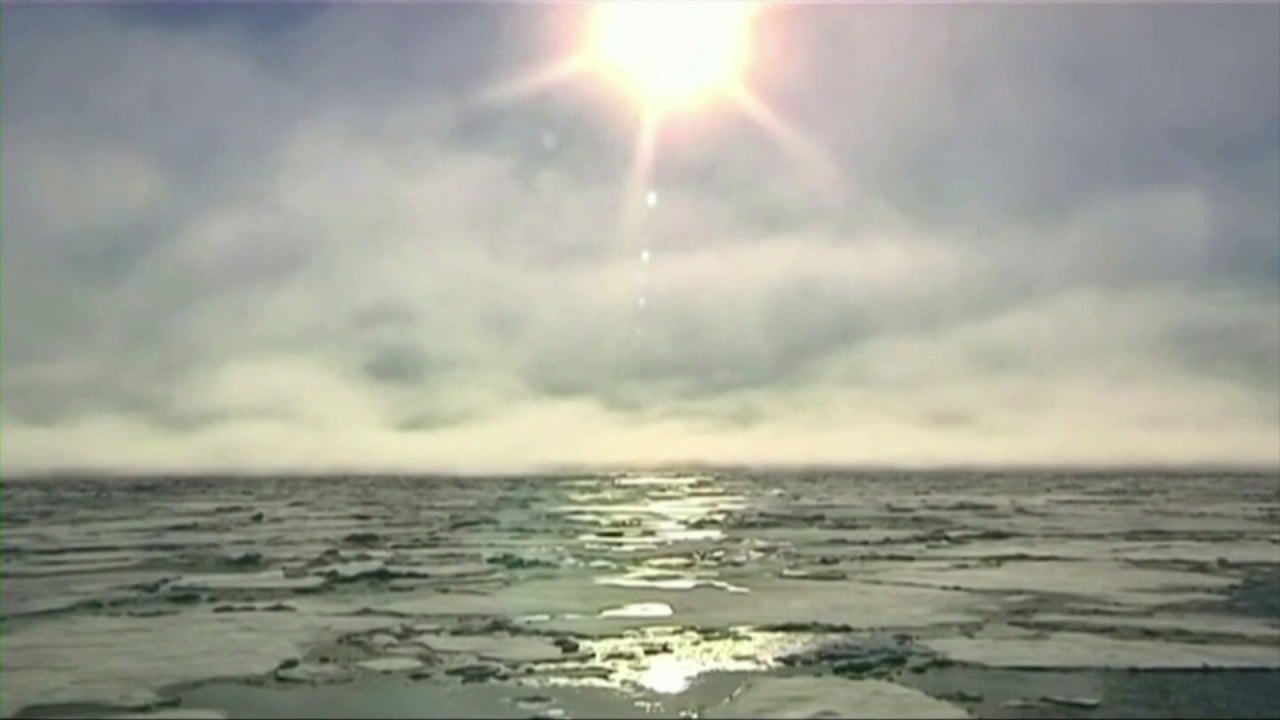
US climate chief says fraught relations with China spell ‘serious trouble’ for efforts to achieve goals
- ‘If climate becomes … one of the weapons in the bilateral back and forth, we’re cooked,’ John Kerry, the US special presidential envoy for climate, says
- Kerry says that China and Russia are not moving quickly enough on climate goals, while acknowledging roadblocks in the US
Climate cooperation between the United States and China is more fraught now than it was just months ago, due to deepening bilateral frictions that threaten to leave the world in “serious trouble”, Washington’s chief climate envoy warned on Wednesday.
Cooperation on ways to limit climate change is “harder now because some of the differences of opinion between our countries have been hardened and sharpened, and that makes the diplomacy more complicated”, John Kerry, the US special presidential envoy for climate, said.
“If climate becomes one of the tools, one of the weapons in the bilateral back and forth, we’re cooked, we’re in serious trouble,” said Kerry, speaking at a virtual event hosted by the Washington-based Center for Global Development.
Against that backdrop, Kerry urged the US and China to keep the climate issue separated from other issues, stressing that both countries – along with the rest of the world – stood to suffer the consequences of rapidly melting ice caps.
Global assets worth up to US$12.7 trillion exposed to climate risks, report says
“That includes in China, where Shanghai, Tianjin and other cities will be immersed in water, as well as Boston and Florida and plenty of other places in the United States,” Kerry said.
“So people have got to get serious about this, which we just haven’t evidenced as a civilisation that we are yet as serious as we need to be.”
Both sides were now working on instituting the pact’s provisions, but those efforts had been “complicated by other issues”, said Kerry, referring to bilateral frictions.

Concerns over how effectively China and the US – the world’s largest and second largest emitters of carbon dioxide – can work together on climate come as climate experts issue increasingly urgent warnings that time is running out to prevent disastrous overheating of the planet.
A panel of experts convened by the United Nations warned earlier this month that limiting global warming to 1.5 degrees Celsius – the ambition laid out in the multilateral Paris Agreement – would be beyond reach by the end of this decade unless countries significantly cut their dependence on coal, oil and gas.
China has pledged to peak its carbon emissions by 2030 and achieve carbon neutrality before 2060.
But Kerry lumped China together with Russia and other countries that he said were “not reducing their [carbon] footprint sufficiently”, while singling out Beijing for its continued reliance on coal.
Hong Kong firms face challenge as guidance on reporting emissions change
Despite a pledge to stop financing coal plants overseas, China continues to sign off on the construction of new coal plants at home, including a 2 gigawatt plant in Zhejiang province approved in February.
Kerry acknowledged that the US was also not doing enough to fund climate action, a failure he ascribed to congressional opposition to US President Joe Biden’s climate-related legislation.
Biden’s plan to mobilise US$555 billion to tackle the climate crisis hit a roadblock in December when the sweeping bill containing those provisions was sunk by congressional Republicans and Senator Joe Manchin, a West Virginia Democrat.
“It’s important for us to be able to go to countries in a credible way and say ‘look, we’ll help you provide an alternative for these people,’” said Kerry. “If the developed world doesn’t do that … it’s not going to happen.”


